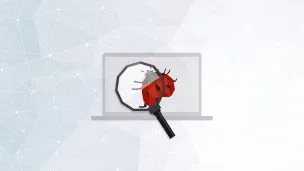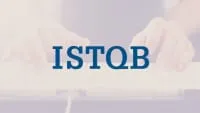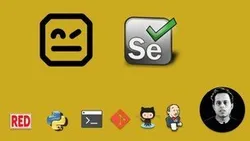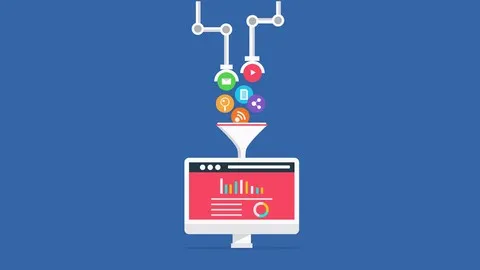
Getting Started With Software Testing Context and Basics 
Software testing is essential to ensure the success of technology projects. This online course provides an overview of the context and basics of software testing, drawing on examples of some of the worst technology failures. ▼
ADVERTISEMENT
Course Feature
![]() Cost:
Cost:
Free
![]() Provider:
Provider:
Udemy
![]() Certificate:
Certificate:
No Information
![]() Language:
Language:
English
![]() Start Date:
Start Date:
On-Demand
Course Overview
❗The content presented here is sourced directly from Udemy platform. For comprehensive course details, including enrollment information, simply click on the 'Go to class' link on our website.
Updated in [March 06th, 2023]
This course, "Getting Started With Software Testing Context and Basics", provides an overview of the context and need of learning in software testing basics from some of worst technology failures. By the end of the course, learners will have a better understanding of the role of software testing in software development and the cost of software bugs to the economy. The course consists of 7 video lectures, each lasting around one and a half hours. Learners can complete the course in one go or take one lecture per day and complete the course within a week. Learners can also ask questions through the 'questions' section and the instructor will periodically answer them. This course provides the context for further learning in software testing and is a great starting point for the "Software Testing Course" offered by the instructor at Udemy.
[Applications]
After completing this course, it is suggested that the learner apply the knowledge gained by taking the next course, "Software Testing Course", from the same instructor at Udemy. This course will help the learner further their understanding of software testing and apply the knowledge gained from this course. Additionally, the learner can apply the knowledge gained by researching and reading more about software testing and its applications.
[Career Paths]
1. Software Tester: Software testers are responsible for ensuring that software programs and applications are functioning properly and meeting the needs of the user. They use a variety of testing methods to identify and fix any bugs or errors in the software. This job is expected to grow in the coming years as more and more companies are relying on software to run their businesses.
2. Automation Tester: Automation testers are responsible for creating and executing automated tests to ensure that software programs and applications are functioning properly. They use a variety of tools and techniques to create automated tests that can be used to quickly identify and fix any bugs or errors in the software. This job is expected to grow in the coming years as more and more companies are relying on automation to improve their software testing processes.
3. Security Tester: Security testers are responsible for ensuring that software programs and applications are secure and free from any potential security threats. They use a variety of tools and techniques to identify and fix any security vulnerabilities in the software. This job is expected to grow in the coming years as more and more companies are relying on software to store and process sensitive data.
4. Performance Tester: Performance testers are responsible for ensuring that software programs and applications are performing optimally. They use a variety of tools and techniques to identify and fix any performance issues in the software. This job is expected to grow in the coming years as more and more companies are relying on software to run their businesses.
[Education Paths]
1. Bachelor's Degree in Software Testing: A Bachelor's Degree in Software Testing is a four-year program that provides students with the knowledge and skills needed to become a successful software tester. Students will learn about software development, software testing, and software engineering. They will also learn about the different types of software testing, such as unit testing, integration testing, and system testing. Additionally, they will learn about the different tools and techniques used in software testing, such as debugging, code coverage, and performance testing. This degree is becoming increasingly popular as software testing is becoming more important in the software development process.
2. Master's Degree in Software Testing: A Master's Degree in Software Testing is a two-year program that provides students with advanced knowledge and skills in software testing. Students will learn about the different types of software testing, such as functional testing, usability testing, and security testing. They will also learn about the different tools and techniques used in software testing, such as static analysis, dynamic analysis, and automated testing. Additionally, they will learn about the different software testing frameworks, such as Agile, Waterfall, and DevOps. This degree is becoming increasingly popular as software testing is becoming more important in the software development process.
3. Doctoral Degree in Software Testing: A Doctoral Degree in Software Testing is a four-year program that provides students with the highest level of knowledge and skills in software testing. Students will learn about the different types of software testing, such as regression testing, acceptance testing, and performance testing. They will also learn about the different tools and techniques used in software testing, such as static analysis, dynamic analysis, and automated testing. Additionally, they will learn about the different software testing frameworks, such as Agile, Waterfall, and DevOps. This degree is becoming increasingly popular as software testing is becoming more important in the software development process.
4. Certificate in Software Testing: A Certificate in Software Testing is a one-year program that provides students with the basic knowledge and skills needed to become a successful software tester. Students will learn about software development, software testing, and software engineering. They will also learn about the different types of software testing, such as unit testing, integration testing, and system testing. Additionally, they will learn about the different tools and techniques used in software testing, such as debugging, code coverage, and performance testing. This certificate is becoming increasingly popular as software testing is becoming more important in the software development process.
Pros & Cons

Good Knowledge

Well understood and easy to understand

Good starting point for beginners

Claros ejemplos

Useful for beginners

Understand terminologies

Repeated context

Audio issues

Oversimplified methodology

Not enough details
Course Provider

Provider Udemy's Stats at AZClass
Software testing is critical to ensuring the success of technical projects. This online course provides an overview of the background and fundamentals of software testing and draws on examples from some of the worst technical failures. In this course, you'll learn how to learn from the worst technical glitches and software glitches. It will make you aware of the role of software testing in software development to prevent such failures. It will walk you through what you need to learn about software testing and another course that covers it. It will make you realize what are the financial losses caused by software errors.
Discussion and Reviews
0.0 (Based on 0 reviews)
Explore Similar Online Courses

Boost Your Game Performance in Unity 3D

Master Cake Baking: The Complete Introduction

Python for Informatics: Exploring Information

Social Network Analysis

Introduction to Systematic Review and Meta-Analysis

The Analytics Edge

DCO042 - Python For Informatics

Causal Diagrams: Draw Your Assumptions Before Your Conclusions

Whole genome sequencing of bacterial genomes - tools and applications

ISTQB Certified Tester Foundation Level Training (CTFL)

Robot Framework RIDE & Selenium - Step by Step for Beginners


Start your review of Getting Started With Software Testing Context and Basics